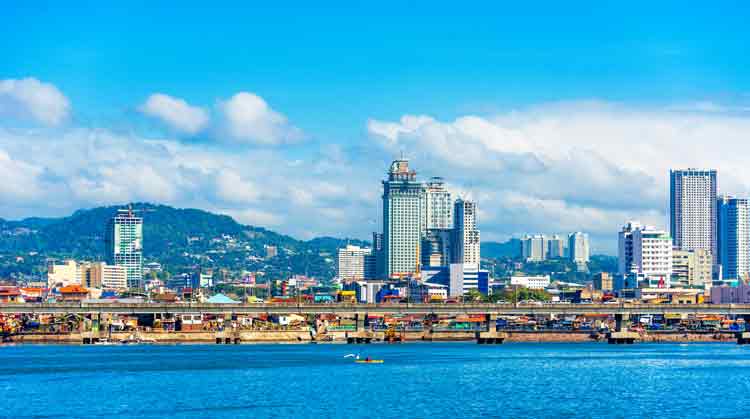Overview
For many travelers, Cebu City serves as a brief stopover before venturing to the stunning resorts and beaches scattered across the islands. Nonetheless, Cebu City offers numerous attractions that merit at least a couple of days of exploration.
Cebu is the second most populated province in the Philippines, with Cebu City ranking just behind Metro Manila.
- Cebu City has expanded along with Mandaue City into a single urban area.
- Lapu-Lapu City, located on Mactan Island, is typically your landing point when flying into Cebu.
While most visitors flock to Cebu for activities such as island hopping, snorkeling, or whale shark swimming, it’s essential to discover what Cebu City itself has to offer before heading off to the beloved white-sand beaches.
The Best Things to Do in Cebu, Philippines
I spent four months in Cebu, opting for a lifestyle as a digital nomad. In searching for a new home, I prioritize comfort, safety, warmth from locals, and accessibility to modern conveniences.
Cebu fulfills these criteria, making it an appealing destination for both short stays and extended living.
1. Magellan’s Cross
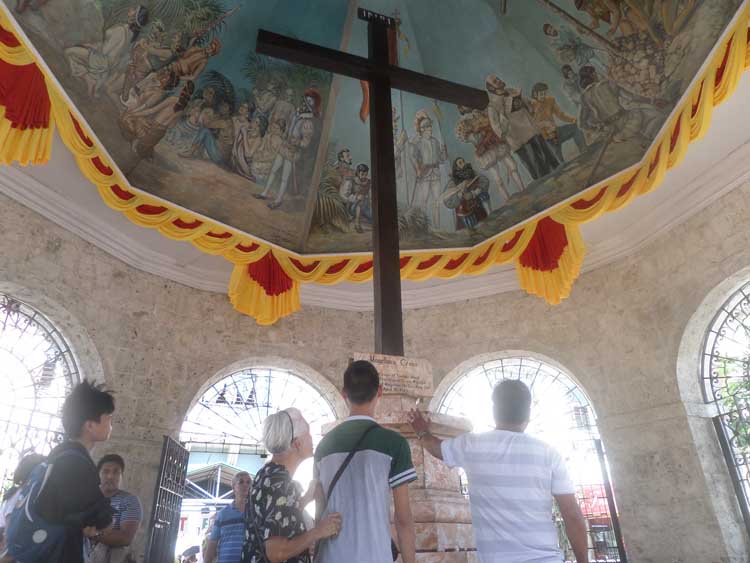
Magellan’s Cross serves as one of Cebu’s most recognizable historical landmarks, commemorating Magellan’s arrival and the subsequent Christian conversion of the populous. The original cross is housed within a sanctuary adjacent to the Basilica Menor del Santo Niño, featuring a beautifully painted ceiling.
- Entrance: Free
2. Colon Street
Known as the most famous street in Cebu, Colon Street boasts a stark obelisk at one end, claimed to be “the first street” established in the Philippines. Named after Christopher Columbus, Colon Street has evolved from a fashionable area to a more rundown part of town, where you can find modern shops interspersed among abandoned buildings.
- Cost: One of the many free things to do in Cebu City.
3. The Cebu Heritage Monument
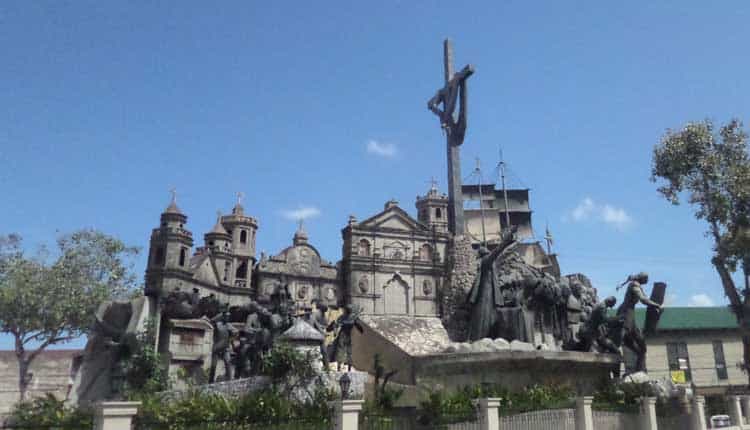
The Cebu Heritage Monument is an impressive structure in the city center that highlights significant historical events and figures, particularly those associated with Christianity. Spend time here or opt for a guided tour for deeper insights into the various elements of the monument.
- Entrance: Free
4. Fort San Pedro
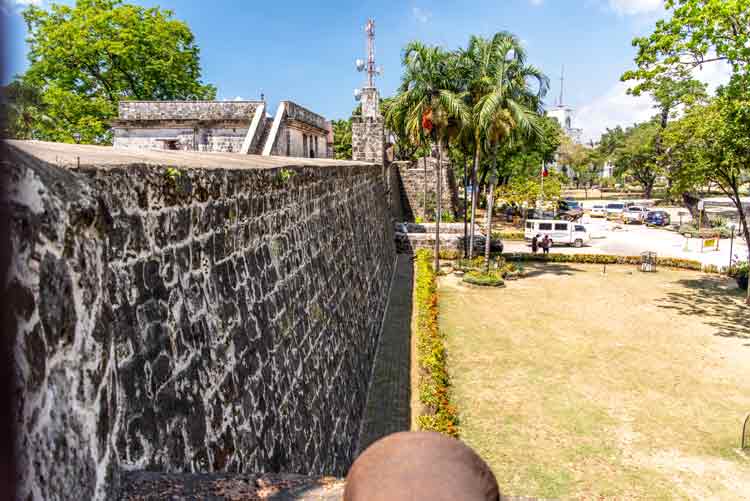
Fort San Pedro, established by Spanish Explorer Legazpi for defense, reflects Spain’s colonial past and offers small exhibitions depicting Cebu’s history. Though the accompanying area lacks greenery, it compensates with vistas of Plaza Independencia.
- For some beach time in Cebu, consider a trip to Mactan Island or nearby Bantayan and Moalboal.
5. Ayala Mall
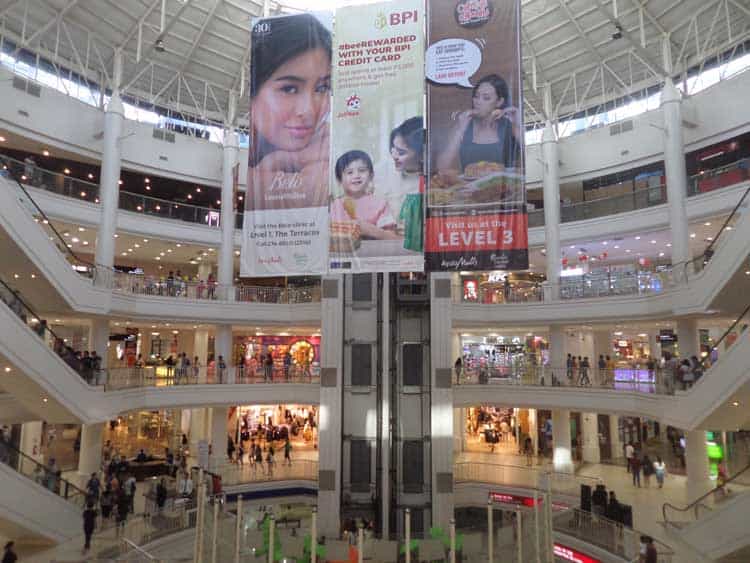
Cebu is teeming with massive shopping malls, with Ayala Mall providing a shopping experience featuring high-quality goods, favored by expats. The inner garden, known as “Terraces,” offers a pleasant dining experience in a scenic setting.
6. AM City and SM Seaside Malls
Outside Ayala Mall, other substantial shopping venues like SM City and SM Seaside also feature a variety of department stores and supermarkets, making them ideal for purchasing essentials like SIM cards or exchanging currency.
7. Basilica del Santo Niño
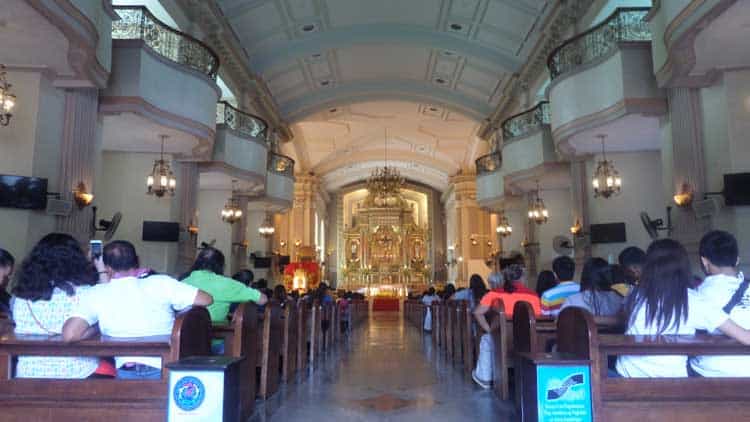
The Basilica del Santo Niño, named for a revered child Jesus statue, remains a significant religious site. Visitors often queue to glimpse the miraculous statue, which is housed behind glass.
- Entrance is free, but be prepared for a security check.
8. Metropolitan Cathedral
Close to the Basilica, the Metropolitan Cathedral showcases beautiful architecture and historical significance, stemming from the introduction of Christianity in 1521.
9. Temples of Cebu
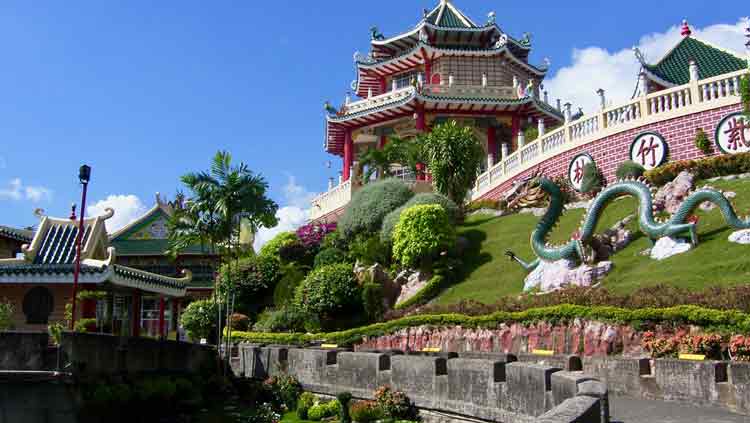
The region hosts several picturesque temples, most notably the Cebu Taoist Temple, which offers scenic views. While many won’t be included in traditional itineraries, they add an interesting dimension to your exploration of Cebu.
10. The Cebu Provincial Museum
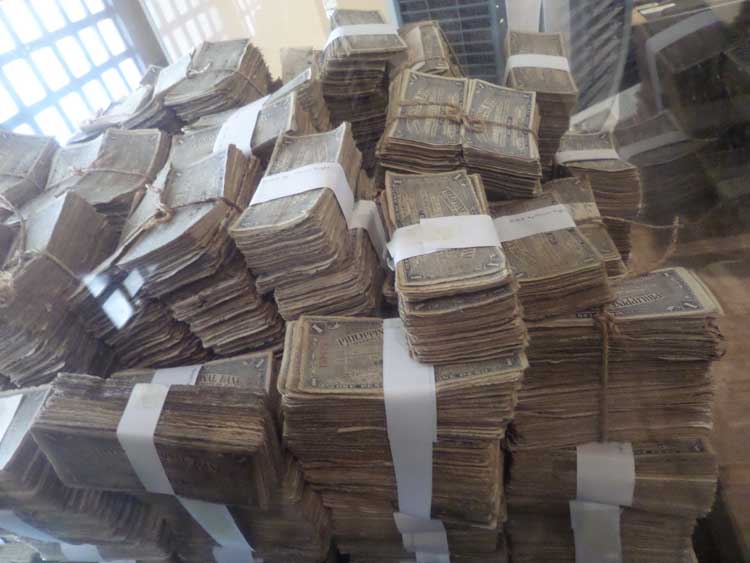
Cebu does not boast an extensive selection of museums, but those available, such as the Cebu Provincial Museum, offer insightful exhibits on the Philippines’ history. It’s worth noting that entrance is typically free, with optional guided tours available.
11. Yap-Sandiego Ancestral House
This historic house, built in the 18th century by Chinese settlers, is a showcase of antique furniture and artifacts. The modest entry fee grants insight into its heritage.
- Entrance: 50 Pesos
12. Casa Gorordo
The Casa Gorordo museum narrates historical tales of Cebu City via guided tours with an entry fee.
- Base entry fee: 80 Pesos
13. Ride in a Jeepney
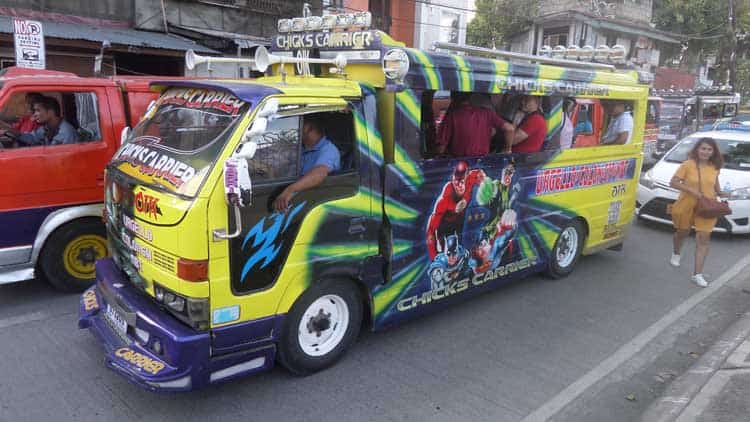
Utilizing jeepneys, the unique public transport option, can be a delightful adventure. These elaborately decorated vehicles operate without fixed stops, making them easily accessible for exploration throughout Cebu City.
How to Ride a Jeepney
- One ride typically costs 8 pesos.
14. Try the Local Food
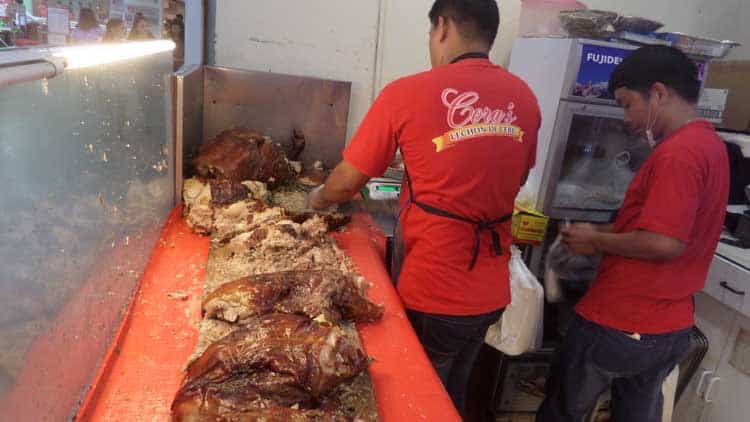
- Lechon: A famous dish of roasted piglet.
- Batchoy: A noodle soup featuring vegetables and meat.
- Bangus: Fried or roasted milkfish, served with rice.
- Lumpia: Filipino spring rolls filled with meat or vegetables.
Filipino food tends toward rich flavors, often featuring seafood and pork, and is frequently accompanied by hearty servings of rice.
15. Visit the Markets
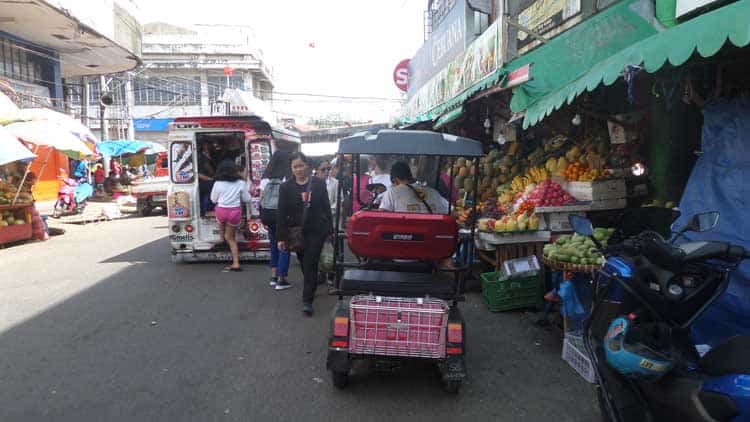
The Carbon Market is a bustling hub where you can find local fruits, vegetables, and various goods, compelling you to embrace Cebu’s vibrant market culture.
16. Take in Festivals
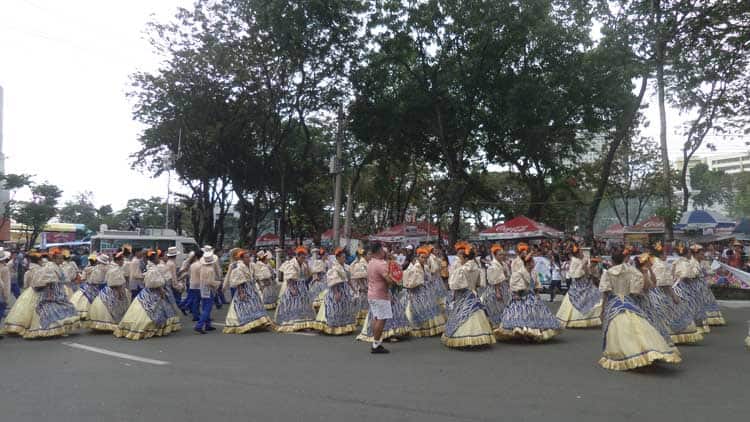
The Sinulog Festival in January is a vibrant celebration centered around cultural and religious traditions, culminating with a spectacular parade.
- Check the official website for up-to-date information: https://sinulog.ph/
17. Visit Cebu’s Party District
If nightlife is what you seek, the bustling party district near Fuente Osmena at Mango Square offers various clubs and venues.
Food of Cebu
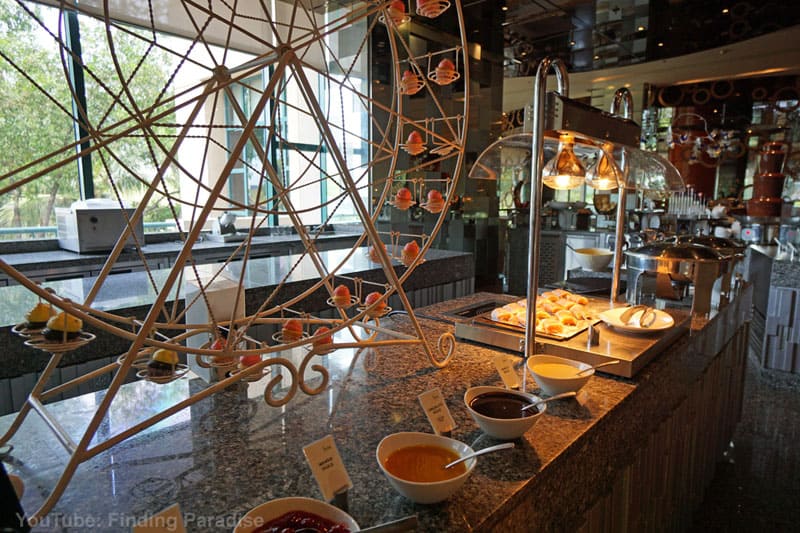
Filipino cuisine may either captivate or challenge your palate, with dishes that can be particularly exotic compared to other Southeast Asian fares. Yet, it presents a delightful opportunity to explore traditional flavors.
My Cebu Food Story
My first attempt at local cuisine led me to a food stall where I ordered what was described as beef soup, only to discover an array of unidentifiable ingredients upon tasting. This experience marked the beginning of my culinary escapades in Cebu.
Practical Cebu Travel Tips and Information
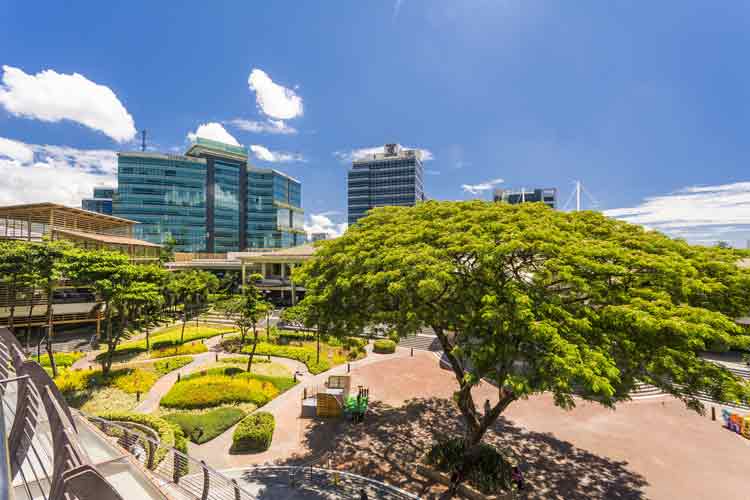
Getting from the Airport to Cebu City
Taxi: The taxi is the quickest, albeit expensive option; ensure the meter is running, with costs averaging 400 Pesos to the city center.
MyBus: A budget-friendly alternative, MyBus connects the airport to SM City Mall for just 50 pesos in a modern, comfortable bus.
Getting a SIM Card in Cebu
Upon arrival, you can acquire a SIM card at the airport, with various options available and typically efficient service.
Money and Banks in Cebu City
The local currency is the peso (PHP). Credit and debit card transactions are common, albeit with caution recommended, as currency exchange rates can be unfavorable at pawn shops.
Where to Stay in Cebu
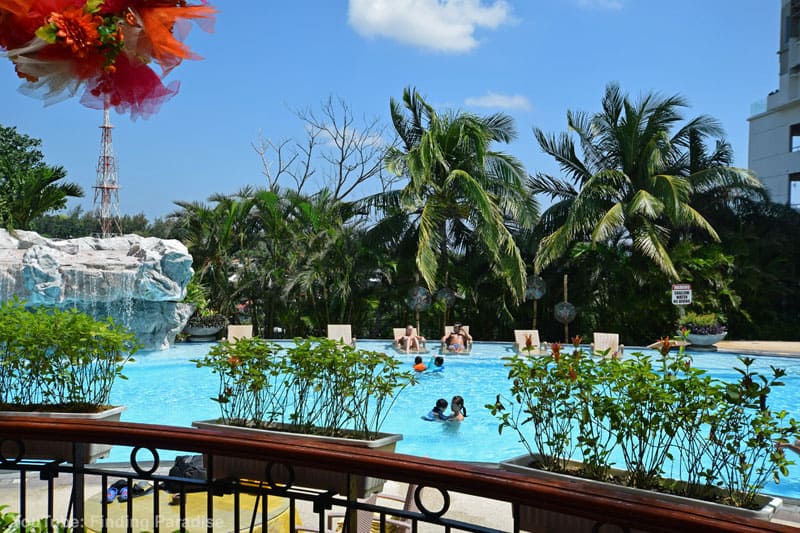
Other Areas to Stay in Cebu:
- Mango Square: Great for nightlife.
- Cebu City Business Park: Right in the heart of the action.
- Mactan: Best place for beaches in Cebu.
- Lapu-Lapu: Easy access to downtown.
- Moalboal: A budget-friendly beach town.
